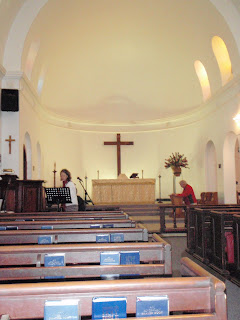By Bob Longino
The 3-year-old barefoot ball of fire named Christina Kausiwa appeared out of nowhere. All 29 inches of her. She hugged my leg and, with a tiny forefinger, started poking my bare left arm.
“Azungu!” she sang out. Her face blossomed into a magnificent smile. Then she ran off laughing while chanting at the top of her lungs, “Azungu! Azungu!”
So far, I understood. In Chichewa, the national language of Malawi in southern Africa, “azungu” means white man. But Christina was far from done. From a distance she called out rapid phrases punctuated by giggles of unending glee.
Shorai Nyambalo, the Habitat for Humanity Malawi staffer accompanying me and Habitat photographer Steffan Hacker on our trip to document Habitat home partners in an impoverished rural community in Malawi’s Melanje District, translated.
It seems Christina wanted me and Steffan to have a sleepover at her new Habitat house.
Soon dozens of children had scampered down the dirt roadways to see the two azungu. I took photos of the mass of kids and each time turned the camera around so they could see the results. They shouted with delight.
All the while, Christina, the smallest of the bunch, would elbow her way to the front, the wave of kids tossing her about like a rowboat in the Atlantic. She’d fall to the ground, crying. But instantly was back on her feet, fighting her way forward to see the latest picture and laugh.
She wore a dress caked in dirt. She was hardly a year old when she and her two older siblings lost both their parents to AIDS.
Their 25-year-old aunt, Rhoda Kameta, adopted them. When Habitat Malawi found the family, they lived in a rundown, windowless, two-room structure made of un-burnt bricks with a mud floor and leaky thatch roof.
Now they have a well-built Habitat house with a metal roof, windows and a blue mosquito net to sleep under to help prevent malaria.
What is striking about Christina, her aunt and the other Habitat home partners Steffan and I met, interviewed and photographed in Malawi to promote Habitat's Orphans and Vulnerable Groups program is how happy they seem. Most have next to nothing. Many days they have little to eat.
But joy they have in abundance. It flows like rapids.
Last month in Durban, South Africa, joy was also rampant when dozens of Habitat home partners, some dating back to the 2002 Jimmy Carter Work Project, at long last received title papers, making them official home owners.
As each name was called to receive title, cheers erupted in the audience. Recipients who came forward often danced and sang.
The joyful display was emotionally overwhelming and a testament to the impact of Habitat’s work.
I believe that to more fully experience pure joy, one needs to have endured intense suffering and deep emotional pain.
In many respects, these displays of joy from those who have suffered underline Jesus’s teachings in Matthew and Luke. “Blessed are the meek for they shall inherit the Earth … Blessed are you the poor for yours is the kingdom of God.”
At Habitat, a key part of our refreshed mission principles clearly states that as an organization we should not only build houses but "promote dignity and hope" for all people.
That seems pertinent as well for Episcopalians. Our Anglican baptismal convenant asks us key questions, such as "Will you seek and serve Christ in all people, loving your neighbor as yourself?" and "Will you strive for justice and peace among all people, respecting the dignity of every human being?"
We answer, "I will with God's help."
Only by acting on what we say we will do can we know that Christina will have the best chance to become the determined, powerful, joyful woman God intends her to be.

Christina Kausiwa, 3, sports a wide grin as she stands outside her new Habitat home in an impoverished community in southern Malawi’s Melanje District. Christina’s family, which includes two siblings and the aunt who adopted them after their parents died of AIDS, is one of 52 recipients of Habitat homes so far in Habitat for Humanity Malawi’s Orphans and Vulnerable Groups program. ©Steffan Hacker/Habitat for Humanity International.










